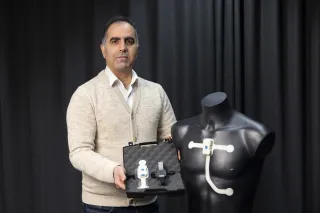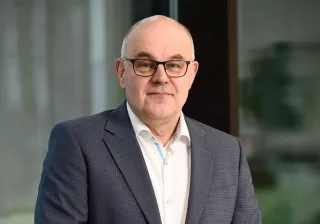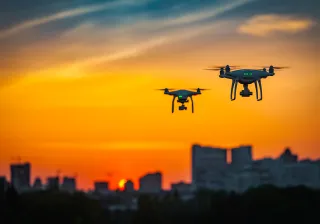BuildERS is a newly funded H2020 project aiming to strengthen societal resilience, including the most vulnerable groups, against natural and man-made hazards. Technology, trust networks, institutional and community capabilities are in the focus of the research.
"By helping the weak we are all stronger."
Globally, the amount and the frequency of geophysical and climate disasters are raising rapidly and posing challenges on communities and individuals. Beyond these, other factors such as population growth, urbanization processes, inadequate land use, lack of prevention measures and inappropriate governance systems for post-disaster emergency, and new types of threats such as terrorism and cyber security, seriously increase the risk of human exposure to hazards. According to the Centre for Research on the Epidemiology of Disasters (CRED)'s 20-year disasters' review (1994-2013), such occurrences affected 218 million individuals and killed 68,000 people every year in average*.
Supporting local communities to prevent, withstand and heal from any disaster is fundamental in minimizing potential crises and losses. Indeed, the resilience of societies heavily depends on how their citizens behave individually and collectively, and how governments and civil society organisations design and implement policies for mitigating risks, preparing for, reacting to, overcoming, and learning from disasters.
The pursuit of resilience shall not just seek technical and administrative solutions, but it should begin by empowering local communities and the people. Understanding new risks and vulnerability, preventing and reducing the likelihood of hazards, prioritizing capacity buildings and awareness raising are the cornerstones of societal resilience. Above all, there is urgency to focus more on the most vulnerable segments of the society such as the elderly, the impaired or the poorest.
"We've discovered that European resilience research has been focusing mainly on critical infrastructures. While this is important, of course, we must also think about the people - as individuals and as local communities. Their resilience is depending on for example their resources, skills and social networks, which partly build their social capital and support in crisis situations" states Principal Scientist Pekka Leviäkangas, who coordinates the project. "Also the trust between individuals and the authorities is crucial - if we don't trust each other and the institutions, it is hard to build resilience and untrusting communities are in fact vulnerable to crises."
Conceive an innovative framework for European resilience
To respond to this need, the European Union has recently funded a new Horizon 2020 research and innovation project entitled "Building European Communities' Resilience and Social Capital (BuildERS)". Coordinated by VTT Technical Research Centre of Finland, a consortium of 17 institutions from Europe, United States and Indonesia will implement BuildERS with the ambition to improve the overall resilience of people, communities and the entire society to natural and man-made disasters starting from the most vulnerable groups. A network of organisations is involved in a co-creation and co-innovation process facilitated by the researchers. These organisations include e.g. cities, civil society groups, rescue and crisis management organisations, safety professionals, and administrations at different levels of the society.
Emphasize co-creation and inclusivity
BuildERS project will look into institutional, community and individual resilience, and through strong engagement of citizens, first-responder organisations and tool developers, it will co-design new ways to increase resilience against known and unknown hazards. The project will incorporate an inclusive and interactive research and analysis process, where the results will not be derived 'top-down', but through a 'bottom-up' dynamic interaction.
"The most vulnerable groups in Europe need support to enhance their resilience. The homeless, the addicted, refugees an some ethnic minorities have little, if any resources, and we must find ways and tools how to include them better to the society and local community while respecting their individual sovereignty" underlines Major Mike Stannett from the International Salvation Army. "We work together with some of the most vulnerable people every day, who when faced with a crisis on top of their daily struggle find themselves excluded from normal recovery processes. These people have so little to start with and even less hope to recover after a disaster. It is a basic human right to live a life of dignity"
Harness resilience tools and technologies - devise policies - build trust
BuildERS will also develop and identify tools and processes through which local communities can improve trustworthy information sharing between citizens and authorities. New information technology and social media play an important role, and the project team will probe, evaluate and demonstrate technologies that have the potential to serve resilience building. BuildERS will also address policies that enhance communities' resilience and build up social capital.
"VTT has a long-standing experience on technological development and innovation. Now, together with our partners, we try to make best use of different technologies, also social media, so that resilience and trust are enhanced. This is a natural role for us and we are excited about this project. The European Commission is putting a lot of trust on the BuildERS consortium and we highly appreciate it." says Leviäkangas.
BuildERS partners - a global network
VTT Technical Research Centre of Finland (Finland) - Coordinator
Stockholm University (Sweden)
Stavanger University (Norway)
Institute for Transport Economics (Norway)
University of Tartu (Estonia)
University of Trento (Italy)
Policy University College (Finland)
Estonian Rescue Board (Estonia)
Stockholm Environment Institute (Sweden)
Positium Ltd. (Estonia)
Geonardo Environmental Technologies Ltd. (Hungary)
The Salvation Army (Belgium)
University of Tübingen (Germany)
German Red Cross (Germany)
Autonomous Province of Trento (Italy)
University of Indonesia (Indonesia)
George Mason Research Foundation (United States)
Affiliate partners from Japan, Australia and Kyrgyzstan.
If you wish to learn more about BuildERS, you can follow the progress of BuildERS on Twitter @BuildERS_EU. The project website www.buildersproject.eu will also be live from mid-2019.
* Centre for Research on the Epidemiology of Disasters (CRED), 2015 "The Human Cost of Natural Disasters.A global perspective." Available at: https://www.preventionweb.net/files/42895_cerdthehumancostofdisastersglobalpe.pdf




